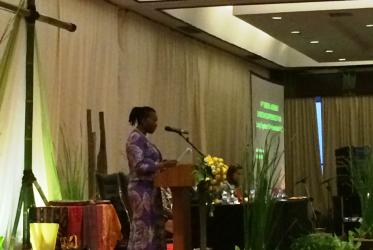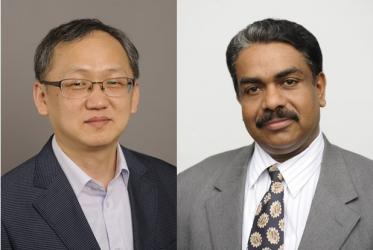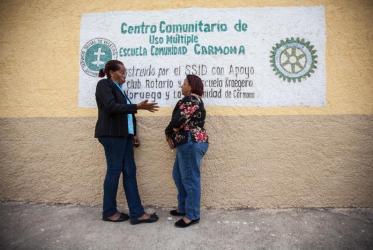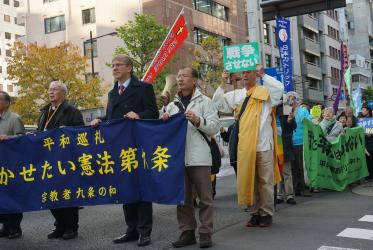Displaying 501 - 520 of 604
Religious leaders urge a ban on fully autonomous weapons
02 April 2015
WCC gives thanks for the life of Ninan Koshy
06 March 2015
Church leaders address statelessness in Dominican Republic
03 February 2015
Christians around the world pray for unity
22 January 2015
Momentum builds for ban on nuclear weapons
16 December 2014
Advent protests in New York City
16 December 2014
WCC advisory group to promote gender justice
05 December 2014











